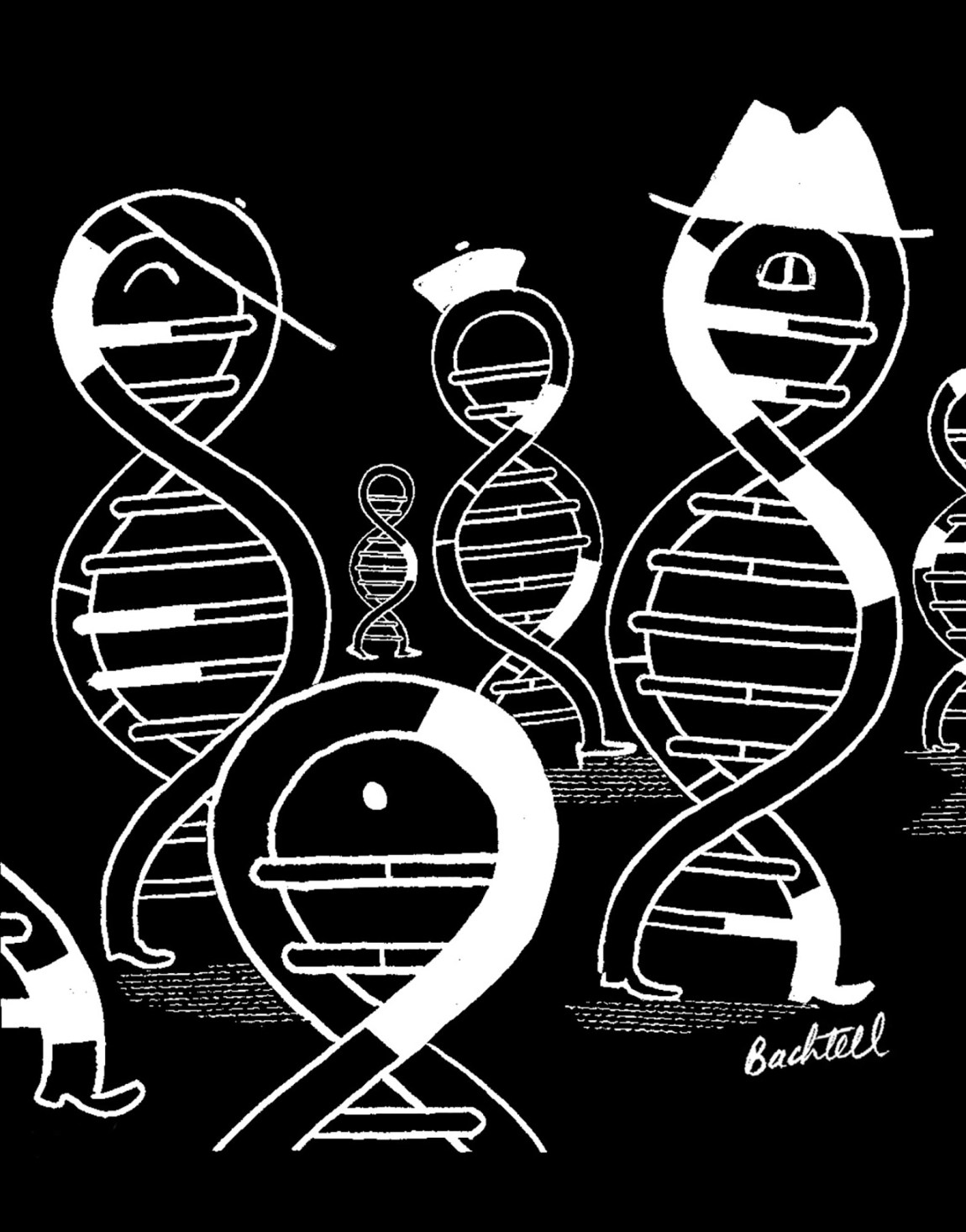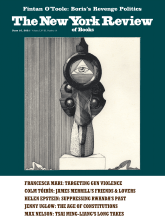In response to:
Editing Humanity’s Future from the April 29, 2021 issue
In her recent review of four books on the prospects of applying CRISPR and related gene modification technologies to the improvement of human biology [“Editing Humanity’s Future,” NYR, April 29], Natalie de Souza appropriately emphasizes the safety of such manipulations as a fundamental requirement, as well as the profound social ramifications of decisions to use these technologies. What de Souza, in common with the authors of all the books under review, sidesteps, however, is that “safety” means entirely different things when therapeutic alterations of the tissues of a mature body are considered, in contrast to those that are administered at early embryonic stages. The engineering of retinal cells to relieve blindness, for example, is not comparable to ridding embryos of genes associated with cystic fibrosis, HIV susceptibility, or sickle cell disease.
Body cell, or “somatic,” modification is in line with traditional medical practice, where a sick person undergoes a procedure or takes a drug that may be the best means for saving their life or sparing them a life of misery. It might or might not be successful but is a risk a patient or those responsible for them can reasonably assume. In embryo modification, however, the tissues of the body are pervasively altered as it is taking form in ways that are poorly understood. Even so-called single-gene traits are established with the participation of dozens or hundreds of other genes often acting in compensatory fashions, leading to the situation that in some individuals a double dose of the most threatening cystic fibrosis or sickle cell gene variants leads to no adverse symptoms at all. Under such circumstances, a single gene change, no matter how accurately administered, is an uncontrolled experiment on a prospective person that may do more harm than good. While errors can be propagated to future generations (leading to the misleading claim that the hazard is primarily through the “germ line”), damage would also be incurred by the experimentally produced person.
All the books under review, and the reviewer herself, accept the baseless premise that gene modification of embryos can be done safely. (“In ten years or so, we will probably meet the minimum conditions of safety and predictability for editing out single-gene diseases,” de Souza writes, and there is no indication that any of the authors disagrees.) The most critical of them, Françoise Baylis, is concerned with ensuring that the fruits of this powerful, perfectable technology will be distributed equitably, and that enough disparate voices participate in deciding whether the endeavor (i.e., making experimental changes in prospective children; irreversibly changing the human gene pool; bringing human production into the commodity system) is what “we” really want. The reviewer and most of the other authors endorse these bien-pensant views. But embryos simply cannot be reliably engineered (something known to any working developmental biologist), and the bioentrepreneurial hype and misinformation that inevitably accompany the manufactured need for these questionable procedures offer nothing to help the buyer to beware in what de Souza unskeptically calls the “genetic supermarket.”
Stuart A. Newman
Professor, Department of Cell Biology and Anatomy
New York Medical College
Valhalla, New York
M.L. Tina Stevens
Lecturer Emerita, Department of History
San Francisco State University
San Francisco, California
Natalie de Souza replies:
Stuart Newman and M.L. Tina Stevens say that human embryos cannot now be safely gene-edited with CRISPR. I agree, as do the authors of the reviewed books. Certainly, developing safe CRISPR gene editing is no trivial matter. A decade may not be long enough to achieve this in embryos even for diseases caused by a mutation in a single gene; this was a speculation. It’s also possible that CRISPR-based technology will face insurmountable problems for embryo editing or somatic cell editing or both. If so, a discussion of the ethics of editing embryos will be moot. But the technology is at a point where the discussion should not be avoided.
Newman and Stevens say that I did not distinguish sufficiently between the dangers of editing embryos versus somatic cells. They observe, correctly, that making a genetic change in an embryo could affect the organism in unpredictable ways. The disagreement here is semantic. I used “safety” to refer to the ability to make a precise change to the genome. I used “predictability” or “unexpected consequences” to describe the type of danger Newman and Stevens are emphasizing. Both of these are minimum conditions for using this technology in humans.
Newman and Stevens make the good point that single-gene diseases may not be that simple to edit predictably. Genetic interactions, which I discussed with respect to multi-gene but not single-gene diseases, can also affect the severity or incidence of the latter, and could indeed make editing single-disease genes more unpredictable. Does this mean there are no situations in which it’s worth taking the risk of reverting a rare disease variant to the more common healthy one? In any event, this further emphasizes my point that the complexity of human genetics and our insufficient understanding mean we should proceed with heritable genome editing with profound caution, if at all.
It’s certainly correct that the primary danger of imprecise or unpredictable CRISPR editing is for the edited person. Perhaps Newman and Stevens mean that there is an ethical aspect to this too, and not only to the potential societal consequences of the technology. As for the concept of the genetic supermarket, I described this as “powerfully unsettling” and as offering “no guarantee that…human well-being would be the only or even the dominant goal.” It’s difficult to understand how Newman and Stevens interpret my position as “unskeptical,” which I manifestly am not.
I would also like to note that since the publication of the review, I’ve become aware that Françoise Baylis, the author of Altered Inheritance, is on the WHO advisory committee for global governance of human genome editing. I regret the omission.




